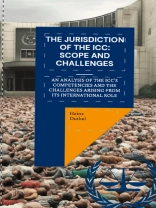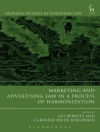An analysis of the International Criminal Court ‘s (ICC) competencies and the challenges arising from its international role.
The International Criminal Court (ICC) operates under a well-defined jurisdictional framework, primarily governed by the Rome Statute, which outlines the core international crimes it can prosecute: genocide, crimes against humanity, war crimes, and the crime of aggression. This jurisdiction extends only to crimes committed on the territory of a state party or by its nationals, unless a non-state party accepts ICC jurisdiction or the UN Security Council refers a situation to the court. The cases of George W. Bush, Tony Blair, Vladimir Putin, Benjamin Netanyahu. The International Criminal Court is investigating Israeli Prime Minister Netanyahu for possible war crimes. Concern about an arrest warrant is growing in the government.
Numerous allegations of war crimes were levied against Israel for its actions against civilians during its 2023 war with Hamas. The UN Independent International Commission of Inquiry on the Occupied Palestinian Territory stated there was ‘already clear evidence’ of war crimes and would share evidence with judicial authorities, including the International Criminal Court’s authorities currently investigating war crimes committed in the Occupied Territories.
As of 1 February 2024, more than 27, 000 Palestinians had been killed by Israel since October 7th, up to two-thirds of whom were women and children.
Critics argue the Biden administration of the United States gave tacit approval to Israeli war crimes.
‘US Threatens International Criminal Court again ‘.
The Jurisdiction of the ICC: Scope and Challenges
An Analysis of the ICC’s Competencies and the Challenges Arising from its International Role
Mission Statement:
‘Trying individuals for genocide, war crimes, crimes against humanity, and aggression – ‘This cause … is the cause of all humanity’ – Former United Nations Secretary-General Kofi Annan’
Sobre o autor
Heinz Duthel, geboren in Nürnberg, ist ein renommierter Philosoph und Autor, der sein Studium der Philosophie und Orientalistik an der Philippine Christian University absolvierte, bevor er an der Universität de Barcelona seinen Master in Philosophie (1987) und später seinen Ph D (1995) erwarb. Seine Doktorarbeit erforschte das komplexe Verhältnis zwischen orientalischer philosophischer Theorie, Sozialphilosophie und sozialer Wirtschafts-Ethik.












